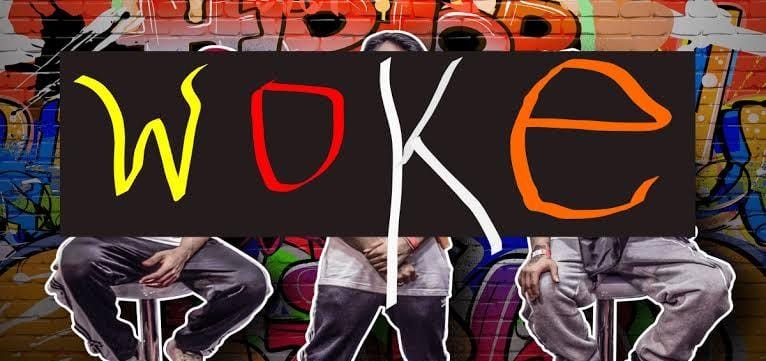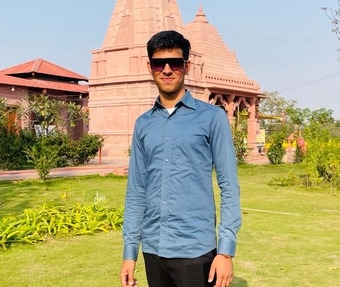Left-Liberalism and Woke Culture

In recent years, India has seen a significant cultural and ideological shift, marked by the emergence of left-liberal ideologies and 'woke culture.'
This development, deeply rooted in global trends, has sparked robust debates and controversies, shaping India's socio-political landscape. From a nationalist perspective, it is crucial to understand how these ideologies are perceived to be affecting India negatively, particularly in terms of national unity, cultural pride, and social harmony.
Understanding Left-Liberalism and Woke Culture
Left-liberalism in India is a political and cultural stance advocating for social equality, secularism, and economic redistribution.
It draws inspiration from Western liberalism but is tailored to address India’s unique socio-economic challenges. Left liberals in India often talk about issues such as caste and gender equality, but I think that they are the only thinkers who divide people on the basis of caste and gender.
If you look deeper into society, you will find that in the name of gender equality, left liberals are targeting Hindu cultural values in a very negative way.
Additionally, their secularism is often seen as pseudo-secularism, selectively applied to suit their agenda. Also, many left liberals are said to support the Naxal movement, even working with them in cities. Because of this, I call them “urban Naxals.”
Woke culture often referred to by me as mental retardness or Intellectual Disability or rebels without a cause is a dangerous idea that can harm India and the world. It means trying to change basic parts of society, like race, gender, sexuality, and caste in India.
Even though it started in African American Vernacular English (AAVE) to fight racial unfairness, using it in India can cause big problems. It breaks apart traditional values and makes people fight with each other. We must say no to this harmful idea and protect our culture and values.
In foreign countries people call themselves woke just to grab attention from the society and we can see the examples nowadays in India too. In India’s case the National Capital Territory and major growing cities are now a place captured by the Woke to protest against the Nation’s principle happening all the time.
Understanding Nationalism
Nationalism in India is a cultural stance that advocates for national unity, cultural pride, and economic self-reliance. It draws inspiration from India’s rich history and diverse culture, aiming to address India’s unique socio-economic challenges.
Nationalist people often align with causes such as national security, economic development, and cultural preservation. India’s nationalist tradition can be traced back to its independence movement, which was characterized by diverse ideological influences, including nationalism, anti-colonialism, and Swaraj (self-rule).
Post-independence India, under leaders like Sardar Vallabhbhai Patel, Veer Savarkar and Lal Bahadur Shastri, adopted policies that promoted national unity, economic development, and cultural preservation, laying the groundwork for contemporary nationalist thought.
The saying goes that an army man’s ideology is likely to be nationalist. If he subscribes to any other ideology, the chances are high that he will not always prioritize the nation’s interests..
Key Issues and Debates
Caste and Social Justice : Left-liberal and woke perspectives often highlight caste discrimination, advocating for social welfare programs and educational reforms to uplift 'so-called’ marginalized communities like SCs and STs, but I believe that instead of fostering a cohesive society, this approach perpetuates an anti-Hindu narrative, exacerbating social divides and undermining the nation’s security.
This focus can exacerbate social divides by continuously highlighting caste differences instead of promoting a unified national identity.
Woke culture can create new social fractures and exacerbate existing ones This poses a danger to India, as it contrasts with an approach that aims for inclusivity and seeks to build a shared national identity.
Gender and Sexuality : In the world of gender and sexuality discourse in India, The widespread impact of woke culture underscores the ongoing need to advocate for gender equality and LGBTQ+ rights, but there’s a growing discomfort with the aggressive tactics employed by certain activists.
This approach risks alienating more conservative factions of society, leading to social fragmentation. Also, there’s a valid concern that the relentless push for rapid and radical change is eroding traditional values, which are deeply ingrained in cultural and religious beliefs.
Compounding this issue is the worrying trend of increased mental health struggles among the youth, attributed partly to the pressure to adhere to specific ideologies.
There’s a palpable sense that the liberal agenda, while well-intentioned, is inadvertently fostering a generation ashamed of their cultural heritage, rather than empowering them to embrace it alongside progressive values.
Freedom of Expression : In discussions around freedom of expression, it's common to see left-liberal and woke activists advocating for more rights to critique traditional norms and authorities.
However, this push sometimes leads to what's known as 'cancel culture,' where dissenting voices are shut down, creating an environment intolerant of views diverging from the woke agenda.
This stifles healthy debate and democratic discourse, as people fear repercussions for expressing their opinions. Unfortunately, some individuals misuse this freedom to spread hate, as seen in cases like the JNU Azadi protests, which sparked similar demonstrations across universities in India.
Secularism and Minority Rights : It’s clear that there’s a delicate balance to strike between protecting minority rights and ensuring the preservation of majority cultural practices and values.
The debates surrounding measures like the Citizenship Amendment Act (CAA) and the National Register of Citizens (NRC) have highlighted tensions, with woke activists framing these measures as anti-Muslim, while we argue they are necessary for national security and integrity others frame them as discriminatory.
They have mastered the art of pseudo secularism by spreading hate and false narrative against a community. It’s worth noting that while the left appeases and advocates for minority rights, there's selective attention only for the majority of the minority.
They never talked about the rights of smaller minority groups like Jains, Sikhs, Parsis, Sindhis, among others which are the actual minorities. A more inclusive approach that considers the rights of all minorities, regardless of size or visibility, is needed rather than these divides.
Their language and priorities tend to cater more to urban, educated elites, exacerbating the divide and failing to address the pressing issues faced by broader segments of society.
Left-liberal and woke ideologies highlight a concern, they prioritize ideological purity over pragmatic solutions. This emphasis may lead to policies and actions that are not necessarily feasible or effective in the Indian context.
Moreover, the intense polarization exacerbated by media and political rhetoric complicates efforts to address India’s complex social issues in a balanced and constructive manner.
The left’s focus on ideology can overshadow considerations of humanity and kindness, potentially contributing to societal division.
The left-liberalism and woke culture in India is a concerning aspect of the country’s socio-political landscape. These movements, particularly their extreme factions like urban naxals, are often seen as villains, posing a threat to Indian society.
While they claim to champion social justice, their divisive tactics and ideological rigidity sow discord and undermine traditional values.
Their influence on India’s cultural, social, and political dynamics is viewed as damaging, and their future impact is feared unless they align with the broader interests of the nation.
Article by

Anvit Dixit
Younginker
Raipur, Chhattisgarh